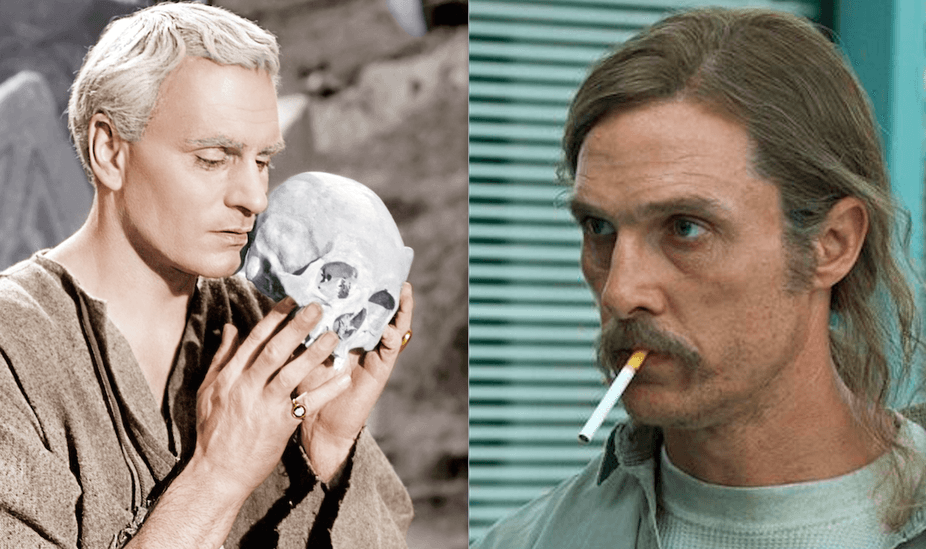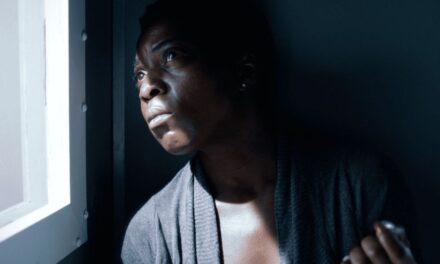Though Shakespeare’s death didn’t attract much attention in 1616, it’s big news today.
To mark its 400th anniversary, there has been no end of events, whether it’s the Folger Library’s First Folio Tour to all 50 states or a production of Hamlet that, to date, has been performed in 196 countries. As far away as Tehran, performances and exhibits have been organized. In New Orleans, two full-blown “jazz funerals” will commemorate the occasion.
When thinking about the reasons for Shakespeare’s enduring popularity, you could point to his facility with language, his ability to deliver moments that possess both poetic complexity and heartrending simplicity.
There’s also the fact that his plays are ripe for adaptation, which has allowed Timon of Athens to be set during the Occupy movement and Othello to be adapted to contemporary India for a Bollywood film.
But many feel most attracted to Shakespeare’s characters, who seem to have lives that transcend the stage.
At the time, Shakespeare was crafting portraits of psychological depth – full of doubt, hypocrisy and mystery – in ways that none of his contemporaries were. His characters hold up so well that we continue to see Shakespeare’s imprint on today’s most popular television shows and films.
CRAFTING A PSYCHOLOGICAL LANDSCAPE
Most of us know what it is to feel heartsick, jealous, blinded by ambition or disappointed by ingratitude. Romeo, Othello, Macbeth, and King Lear – all seem to have anticipated and expressed our own emotional experiences better than we could. Our mistrusted politicians are so many Julius Caesars and Lady Macbeths, our ill-fated lovers Romeos and Juliets, our ingenious heroines Rosalinds and Portias.
Shakespeare’s men and women are both archetypal and still so modern partly because, like no others before them, they grapple with inner conflicts. Soliloquies and dialogue become not only sources of information for the audience but also lead to action; in other words, whereas the plots of earlier plays depended on what the characters did, Shakespeare’s plays seemed to progress and develop because of what the characters thought.
Take Hamlet, who grapples with fear and doubt about avenging his father’s murder; he’s disturbed by the potential injustice of the act, and the prospect of risking his sanity, or even his soul, if he follows through.
Characters before Shakespeare’s time may have feared the act of revenge, but more due to the potential consequences of failure than out of the spiritual and psychological anguish that might accompany success.
IN HIS CHARACTERS, THE ALLURE OF THE UNKNOWN
Staging these internal conflicts within the plays helps make the characters feel relevant today, and may account for why the best television and film characters Shakespearean.
The lead figures of HBO’s True Detective, PBS’s Downton Abbey, and the Netflix documentary Making a Murderer all struggle to resolve internal unrest, some of which is mysterious to us – and even to them.
In Downton Abbey, Lady Mary Crawley’s interest in her suitors often waxes or wanes without incident or explanation; her coldness to Edith is sometimes retributive, but sometimes a random attack – not unlike Hamlet’s spontaneous railing at Ophelia.
In the documentary Making a Murderer, the mystery is, of course, central. But our sense of mystery is intensified because we cannot even be sure if Brendan Dassey knows whether he is guilty of a crime or not.
Shakespeare didn’t simply create characters who possess inner turmoil. He also constructed the characters in ways that were likely to stir up doubt among readers and spectators. For many of his characters, key details are omitted; we don’t know what to think – and this can create an illusion of psychological depth.
Hamlet, for example, isn’t mad: he tells his companions plainly that he will feign madness to avoid suspicion while carrying out his plan for revenge. But Shakespeare allows him to go too far, causing audiences to wonder whether he has actually gone mad.
Nor do we understand why Hamlet wavers, why Lear so rashly disowns his loyal daughter, why Iago is so embittered against Othello. Likewise, programs like True Detective leave critical information out. It’s difficult to tell whether Rustin Cohle’s daughter’s death, his failed marriage, and former drug use are worthy of blame, sympathy or both. We see the current struggle and must guess at and fear the details and motives that underlie it.
NOT FULLY GOOD, NOR ENTIRELY EVIL
Shakespeare was also adept at blurring the lines between good and evil.
Othello and Macbeth commit murders, but other characters seem at least as responsible as they are. So when Othello says at the end of the play that he “loved not wisely, but too well,” an audience can believe him, despite staring at the wife he strangled. Macbeth must be shamed into regicide by a wife who mocks his manhood, suggesting that he is “too full o’the milk of human kindness.” Ironically, only loyalty to her can move him to treason.
It is this “kindness,” in its root sense, that is a major source of energy and interest for characters like Macbeth and Othello. We grasp their humanity because their moral inconsistencies make them more like the people we meet (and the people we are); depending on the day or point of comparison they – like us – can be friendly or indifferent, generous or spiteful, loyal or faithless.
When Vince Gilligan sat down to write Breaking Bad, he sought to transform television by making a protagonist that evolved into an antagonist, a character that would both attract and repel the audience. Walter White enlists audiences to support him – he is a teacher, he is dying, he cares about his family – and to continue that support even as he becomes loathsome.
As viewers, we’re generically inclined to support the cops over the criminals; at the same time, we cannot resist becoming attracted to, and even siding with, a drug dealer like D’Angelo Barksdale (The Wire), whose blend of swagger and diffidence, intelligence and good humor render him more human than some of the brutal officers out to imprison him.
The last two decades have been called a golden age for television. Shows like The Wire, Mad Men, and Breaking Bad have attained the status of high art, and they’ve deservedly been praised for their innovations. But it’s worth considering that they have resurrected the type of moral complexity and ambiguity Shakespeare was able to achieve.
Such internal conflicts are not always pleasant for audiences. But they make it difficult to look away. Because of Shakespeare, they’ve been at the center of some of the most successful popular entertainment for over 400 years.
This article was originally published in The Conversation. Reposted with permission. Read the original article.
This post was written by the author in their personal capacity.The opinions expressed in this article are the author’s own and do not reflect the view of The Theatre Times, their staff or collaborators.
This post was written by Brett Gamboa.
The views expressed here belong to the author and do not necessarily reflect our views and opinions.


















